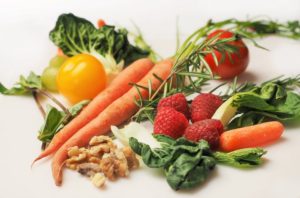Fibre is definitely a hot topic among the nutrition and dieting community, and unfortunately with the uprising of fad dieting and a plethora of misinformation around, it can sometimes be hard deciphering between who and what to believe.
The question of how much fibre a person should be consuming daily has long gone unanswered, however the World Health Organisation recently commissioned a study aimed at discovering an ideal daily amount for preventing chronic disease and premature mortality.
After examining 40 years of research, the study found people who consumed 25-29 grams of fibre daily were 15-30 per cent less likely to die prematurely from any cause or a cardiovascular condition, compared to those who ate less.
Additionally, consuming fibre rich foods correlated with a 16-24 per cent lower incidence of coronary heart disease, stroke, type 2 diabetes, and colon cancer.
“The health benefits of fibre and supported by over 100 years of research into its chemistry, physical properties, physiology, and effects on metabolism,’ lead author Professor Jim Mann, from the University of Otago, New Zealand said.
The average Australian adult currently only consumes between 20-25 grams a day, meaning we would probably all benefit from upping our intake.
Prof Mann said fibre-rich food that required chewing and retained much of its structure in the gut increased satiety and aided weight control, helping to favourably influence lipid and glucose levels.
“The breakdown of fibre in the large bowel by the resident bacteria has additional wide-ranging effects including protection from colorectal cancer,” Prof Mann said.
Here is a breakdown of fibre content in some of your favourite food:
Fruit:
- 1 serving of apples, bananas, oranges, strawberries: 3-4g fibre
- 1 cup of raspberries: 8g fibre
- 1 mango: 5g fibre
- 1 persimmon: 6g fibre
- 1 cup guava: 9g fibre
Vegetables
- 1 medium-sized artichoke: 10g fibre
- 1 cup broccoli: 5.5g fibre
- 1 cup Brussel sprouts: 6.4g fibre
- ½ cup peas: 4.4 fibre
- ½ cup soy beans: 10.3g fibre
- 1 cup carrots: 4.8g fibre
- 1 cup cooked spinach: 4.3g fibre
Nuts and seeds:
- 23 almonds: 3.5g fibre
- 2tbsp chia seeds: 10g fibre
- 1 serving size of flax seeds: 8g fibre
- 1 small handful of pumpkin seeds: 5g fibre
Grains and legumes:
- ½ cup chickpeas = 3.8 fibre
- ½ cup rolled oats = 5.8g fibre
- 1/2 cup boiled lentils: 7.5g fibre
- ½ cup baked beans: 5g fibre



